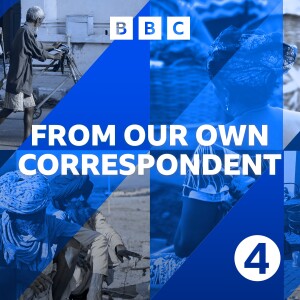
The pounding of civilian infrastructure by Russian forces has continued this week in cities like Mykolaiv and Mariupol even as peace talks were underway. And Russia's claims it will reduce its military activity in the north and focus more on Ukraine’s eastern Donbas region are being treated with scepticism. Orla Guerin is in Kyiv.
Ukraine’s President, Volodymyr Zelensky, described the siege of Mariupol as a ‘crime against humanity’ this week. Mariupol’s mayor has called for the evacuation of the entire city. But the journey away from the city is fraught with danger and a safe passage is far from guaranteed. Hugo Bachega spoke to those that did manage to escape.
A few days after the invasion, German Chancellor Olaf Scholz unexpectedly announced a massive boost in military spending. It’s arguably one of the most dramatic shifts in German foreign policy since the Second World War. According to polls most Germans support the new policy, but enthusiasm for it is muted. Our correspondent Damien McGuinness is in Berlin.
In Sudan, women have been celebrated for leading the revolution that saw former military ruler Omar al-Bashir toppled. But the Generals still have the upper hand. After two years of sharing power with civilian politicians they staged a coup in October and instituted a transitional military council. Sudan’s women and men have been protesting daily and at least 90 people have been killed in a crackdown. Catherine Byaruhanga was in Khartoum.
Nearly 1.4 million people in Canada are of Ukrainian heritage. Many of them trace their roots to Ukrainian immigrants who came to Canada in the late 19th century. Greg Mercer’s heard how they are rallying to the defence of the old country.
Presenter: Kate Adie
Producer: Serena Tarling
Editor: Hugh Levinson
view more
More Episodes
Drug cartel violence spreads through Ecuador
 2023-08-26
2023-08-26
 2023-08-26
2023-08-26
The Sudanese refugees sheltering in Chad
 2023-08-19
2023-08-19
 2023-08-19
2023-08-19
Life and war in Yemen
 2023-08-12
2023-08-12
 2023-08-12
2023-08-12
Cambodia's strongman bows out
 2023-08-05
2023-08-05
 2023-08-05
2023-08-05
Israel's culture war over the Supreme Court
 2023-07-29
2023-07-29
 2023-07-29
2023-07-29
Sudan: a neglected conflict
 2023-07-22
2023-07-22
 2023-07-22
2023-07-22
Uruguay's Water Crisis
 2023-07-20
2023-07-20
 2023-07-20
2023-07-20
Wagner Group: Business as Usual?
 2023-07-15
2023-07-15
 2023-07-15
2023-07-15
After Jenin
 2023-07-13
2023-07-13
 2023-07-13
2023-07-13
The Yazidis who survived Islamic State
 2023-07-08
2023-07-08
 2023-07-08
2023-07-08
Grief in France's banlieues
 2023-07-06
2023-07-06
 2023-07-06
2023-07-06
Tracing Syria's Captagon Trade
 2023-07-01
2023-07-01
 2023-07-01
2023-07-01
The Wagner mutiny in Russia
 2023-06-29
2023-06-29
 2023-06-29
2023-06-29
Ghana's healthcare brain drain
 2023-06-24
2023-06-24
 2023-06-24
2023-06-24
Life and Death in North Korea
 2023-06-22
2023-06-22
 2023-06-22
2023-06-22
Donald Trump's courtroom drama
 2023-06-17
2023-06-17
 2023-06-17
2023-06-17
The Myanmar soldiers refusing to fight
 2023-06-15
2023-06-15
 2023-06-15
2023-06-15
The Taliban's Opium War
 2023-06-10
2023-06-10
 2023-06-10
2023-06-10
Erdogan Wins Again
 2023-06-03
2023-06-03
 2023-06-03
2023-06-03
Gun Violence in Serbia
 2023-06-01
2023-06-01
 2023-06-01
2023-06-01
012345678910111213141516171819
Create your
podcast in
minutes
- Full-featured podcast site
- Unlimited storage and bandwidth
- Comprehensive podcast stats
- Distribute to Apple Podcasts, Spotify, and more
- Make money with your podcast
It is Free
- Privacy Policy
- Cookie Policy
- Terms of Use
- Consent Preferences
- Copyright © 2015-2024 Podbean.com



